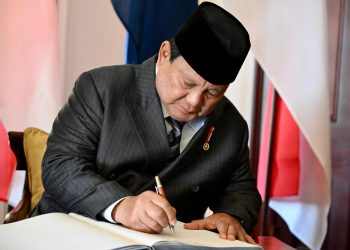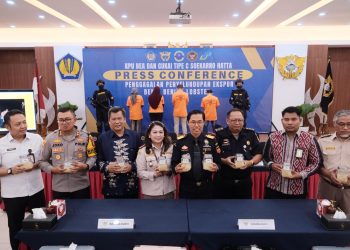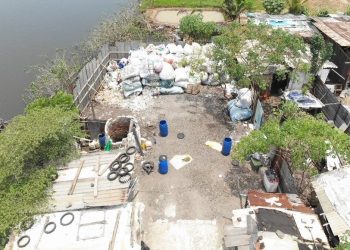Jakarta, Indonesia Sentinel — Indonesia ranks as the fourth-highest country globally for child pornography cases, according to Minister of Communications and Digital Affairs (Komdigi) Meutya Hafid. In response, President Prabowo Subianto has directed Komdigi, along with three other Ministry, to expedite the drafting of new regulations aimed at protecting children in the digital space.
Prabowo has directed several ministry to collaborate alongside Komdigi, including the Ministry of Health (Kemenkes), the Ministry of Women’s Empowerment and Child Protection (Kemenpppa), and the Ministry of Primary and Secondary Education (Kemendikdasmen).
“This is not without reason. Indonesia currently ranks fourth in the world for child pornography-related content,” Meutya said during a press conference at the Ministry of Education in Jakarta on Sunday, February 2, 2025, as reported by Kompas.
According to the Ministry of Women’s Empowerment and Child Protection (KemenPPPA), Data from the National Center for Missing Exploited Children (NCMEC) shows that over the past 4 years, there have been 5,566,015 cases of child pornography content uncovered in Indonesia.
“And this does not even include the growing threats of online gambling targeting children, cyberbullying, child sexual exploitation, and other negative aspects,” Meutya added.
This show the importance and urgencies for synergy and collaboration between Ministries to carried out an effort on eliminating all forms of violence against children in the digital spaces, especially in terms of pornography.
Pushes Digital Protection Law
Meutya revealed that her ministry and the three others had been summoned to a meeting at the Presidential Palace with Cabinet Secretary (Seskab) Pramono Anung.
Following the meeting, President Prabowo ordered the ministries to fast-track the formulation of child protection regulations for the digital space.
“The President, through the Cabinet Secretary, instructed us to accelerate the drafting of these regulations so they can be finalized as soon as possible. We have been given a timeline of one to two months,” Meutya said.
To execute this directive, the four ministries have issued a Joint Ministerial Decree to establish a working group responsible for drafting the regulations.
“All four ministries are aligned in this effort, each bringing a different perspective, but with the same commitment,” Meutya emphasized.
Stronger Regulations and Penalties
As part of its child protection efforts, the Indonesia government, through the Ministry of Digital Communications (Komdigi), will impose strict penalties on digital platforms that fail to remove child pornography content within four hours of receiving a report.
“Protecting children from the harmful effects of the internet is our top priority. There is zero tolerance for platforms that neglect this responsibility. This is not just about regulations; it is a moral duty to safeguard the future of our younger generation,” Meutya stated on Friday (Jan. 31).
Under Ministerial Decree No. 522 of 2024, Electronic System Operators handling User-Generated Content (PSE UGC) are required to remove illegal content within a set timeframe, depending on the severity of the violation.
For child pornography and terrorism-related content, platforms must take down the material within four hours of receiving notification. The policy is designed to ensure a swift response to content that could threaten public safety and the moral well-being of children in the digital space.
In addition to child pornography and terrorism, the government is also targeting the removal of other harmful content, including general pornography, online gambling, illegal financial activities (such as fraudulent investments, unregistered fintech operations, and illegal online lending), as well as unapproved food, drugs, and cosmetics.
Read Also:
Indonesia to Launch Content Moderation System ‘SAMAN’ in February 2025
To strengthen enforcement, Komdigi recently launched SAMAN, a system designed to track and document administrative fines imposed on PSE UGC platforms that fail to comply with content moderation policies.
The initiative is part of a broader effort to enhance oversight of digital platforms while fostering a safer and more competitive online environment for Indonesians.
(Raidi/Agung)


























